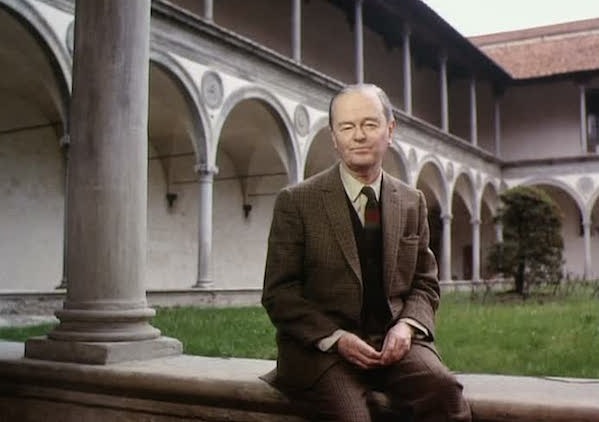Kenneth Clark’s view of culture may by now be ‘outmoded’, but I was surprised to read that it was also ‘narrow’. An exhibition at Tate Britain about Clark’s influence, Looking for Civilisation, and the BBC’s threatening to remake the Civilisation TV series, have given rise to some depressing comment. Much mention is made of Clark’s ‘stiff’ presenting style; he mostly stood in front of the camera, rather than walking to and from it as one must now. I assume we are being encouraged to take this as the sign of regrettably rigid thinking. But Clark knew where he stood. And that is at the root of the problem.
‘I believe that order is better than chaos, creation is better than destruction. I prefer gentleness to violence.’ One reviewer chose Clark’s closing statements as particularly demonstrative of a ‘skewed geographical and intellectual balance’. But surely we do not have to be centred – arbitrarily or not – on Renaissance Florence, to agree with Clark? It is not just that Clark dared to make judgments; the real complaint is that, though he was rather Romantic, and though he privately supported a number of modern British artists, he was never a fully convinced, doctrinaire Modernist. Twentieth-century art – like the politics – too often went in for chaos, destruction and violence. Clark meant to warn us. And so Clark must be caricatured as a fogey, or even as a spoilt dilettante proclaiming to the masses, because Modernism is, now more than ever, sacred.
When these journalists so patronisingly mention Clark’s ‘misunderstandings’, it is reminiscent of the obituaries for Gombrich that made casual reference to his ‘prejudices’ and ‘oversights’. If it really was a failure of Clark’s, and Gombrich’s, not to ‘understand’ the value of abstract art, then it was a failure they shared with – to mention just a notable few – Picasso, Matisse and Giacometti. It must take total piety to be able to ignore the reasoned concerns of those who thought hardest about art in the modern world, and devoted themselves most and best to it. Indeed, we might quite precisely call such an attitude, and such an agenda, prejudiced. Ironically, it betrays an absolute rigidity of mind and narrowness of view.
Of course, beneath it all is a fearful resentment of an old intellectual establishment that seems too cultivated; an establishment that was completely and happily independent of popular culture. They call Clark’s view narrow only because they tragically overestimate the breadth of the popular culture that did not interest him. And they make that overestimation precisely because they are blind to most of what he was able to see.
But there is an even sadder subtext. They criticise him – with arrogance and prejudice – for not writing enough about non-Western cultures or women artists. They criticise him then for writing on his subject, and not their own. Clark titled the series, Civilisation: A Personal View; and ‘a personal view’, it seems, may no longer be really allowed.
Jacob Willer is a figurative painter from London. He is writing a book about how to enjoy looking at paintings.






Comments